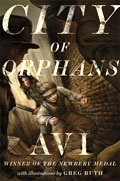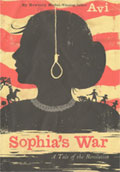 If you were writing a book set in the fourteenth century, you might describe a character as “whispering,” but might that character say, “whisper to me”?
If you were writing a book set in the fourteenth century, you might describe a character as “whispering,” but might that character say, “whisper to me”?
No, because it is not until Shakespeare used the word, in 1609 in his play, Pericles, that it enters the written language.
I know this because I checked with my (online) Oxford Unabridged Dictionary of the English Language (referenced often as the OED).
Does it matter in your writing? I suppose the answer is yes and no. Would you have an ancient Briton look out upon a Roman Legion for the first time and mutter, “Totally awesome.” I think not. However, no one will clap you into jail if you do. Still, if you love words—I do—I think it makes a difference.
Obviously, I do not check every word.
 Nonetheless, my own rule for this is that if I can use a key word from the time about which I am writing, which is self-explanatory, I will use it. Thus in City of Orphans, a teenager is described as “pout-mouthed.” Anyone who knows children will instantly understand this marvelous word, which was used around the turn of the Nineteenth Century. Since I stumbled upon it, I have used it in other works and in conversation. You are welcome to spread the word. Pout-mouthed. Totally awesome.
Nonetheless, my own rule for this is that if I can use a key word from the time about which I am writing, which is self-explanatory, I will use it. Thus in City of Orphans, a teenager is described as “pout-mouthed.” Anyone who knows children will instantly understand this marvelous word, which was used around the turn of the Nineteenth Century. Since I stumbled upon it, I have used it in other works and in conversation. You are welcome to spread the word. Pout-mouthed. Totally awesome.
In my most recently published book, Sophia’s War, set in New York City during the American Revolution, I used some of the vocabulary current at that time. I even put a glossary of these words at the back of the book, such as “glowflies” (fireflies) or “pixie-led” (confused).
A current project, set in Fifteenth Century England, uses such words as “brainsick” for crazy, “misfortuned” for poor, and “dreariheaded,” for sad. They are accurate for the time. I think of these words as the spices and herbs one uses to flavor a stew, a word, I need caution you, that only enters the written English language in 1594.
Do not take me at my word. Check the OED.